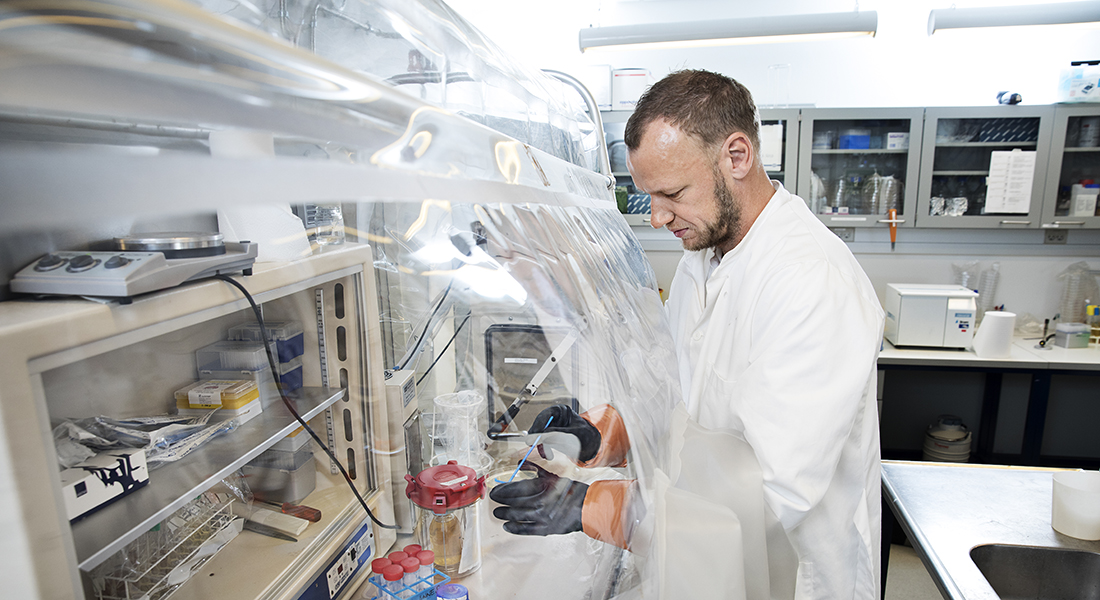Danish and American researchers will study the intestinal response to a new calcium product designed to strengthen bones
A new research project, RENEW, will examine whether it is possible to increase women’s bone strength using a new calcium product that is being developed by the project, thus preventing osteoporosis. Danish and American researchers will examine how the product affects women’s intestinal microbiome and whether changes in the composition and activity of the intestinal microbiome increase the uptake of calcium.

It is estimated that more than 20% of women aged 50-84 years suffer from osteoporosis to a greater or lesser degree. The newly developed product will help reduce the number of bone fractures, which otherwise results in sick days, hospitalisations and reduced quality of life.
The starting point for the research project is a 12-month intervention trail where 400 postmenopausal women will be enrolled. The study will examine how they absorb milk calcium as well as how their bones might be strengthened by consuming a newly developed calcium product.
The product is based on a sidestream from the whey production at Arla Food Ingredients (AFI), so-called whey permeate, which contains a lot of calcium.
The women will be asked to provide stool samples for the study, so researchers from the Department of Food Science at University of Copenhagen (UCPH FOOD) and researchers from the USDA Western Human Nutrition Center in the US can determine the composition of the intestinal microbiome using so-called metagenomic sequencing in various stages of the study.
Substrate to strengthen the colon
The new product, developed by Arla Food Ingredients combines whey permeate, which is a good source of calcium, with dietary fibre that stimulates the activity of the intestinal microbiome.
“The interesting thing is that the prebiotic taken by the women along with the calcium source ends up in the colon where it is eaten by bacteria and converted into short-chain fatty acids, which will lower the pH of the colon. This will facilitate the absorption of calcium. It works well in theory, and through the intervention study we will now see whether it also works in practice,” explains Professor with special responsibilities Dennis Sandris Nielsen from UCPH FOOD.
The intervention study is led by the Department of Nutrition, Exercise and Sports and conducted in collaboration with Zealand University Hospital.
Once the study has been completed, the researchers from UCPH FOOD, together with the American researchers, will use the generated sequencing data to investigate how the newly developed product has affected the intestinal microbiome in the women and how it interacts with the calcium uptake.
“In addition to facilitating absorption of calcium, the dietary supplement also changes the composition of the bacteria in the intestinal microbiome and it is these changes that we will examine by characterising the microorganisms in the women’s intestinal microbiome before and after the intervention. We expect that the product will generally have a positive effect on the composition of the intestinal microbiome and thus have a positive effect on the participants,” says Dennis Sandris Nielsen.
Topics
Related News
Contact
Professor with special responsibilities Dennis Sandris Nielsen, the Department of Food Science at the University of Copenhagen (UCPH FOOD), dn@food.ku.dk
or
Communications officer Lene Hundborg Koss, UCPH FOOD, lene.h.koss@food.ku.dk
Facts about RENEW
Official title: RENEW – Valorization of dairy sidestreams to fight calcium deficits in postmenopausal women. Duration: 5 years.
Partners in RENEW:
University of Copenhagen, including the Department of Nutrition, Exercise and Sports (NEXS), Department of Food Science (UCPH FOOD), Zealand University Hospital, Aarhus University, which is the project leader, Arla Foods Ingredients (AFI) and the USDA Western Human Nutrition Center in the US.
RENEW has a total budget of DKK 22.1 million, DKK 15.4 million of which is contributed by Innovation Fund Denmark. UCPH FOOD’s share is DKK 2.5 million.
